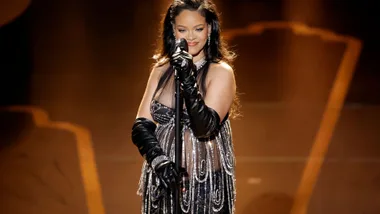In a commendable move, Pinterest has banned all types of weight-loss advertisements on its platform. While the social media service already disallowed any content around body-shaming or unsafe weight loss products, Pinterest is now banning any advertisements that “discuss weight loss, reference BMI, or show before-and-after imagery or imagery that idealizes certain body types and features,” according to Aya Kanai, Pinterest’s head of content, per Glamour.
With conversations and awareness around the harm that such advertising can cause becoming increasingly mainstream, the move seems to ratify the Pinterest platform’s commitment to being a safe, positive and inclusive space.
The policy forms part of a raft of new developments to the Pinterest Creator Code, the rules which all users of the platform must adhere to.
“As our base continues to grow, we are always evaluating how we can continue to maintain the platform’s positivity and inclusivity—advertisements that promote weight loss or idealize certain body types can be harmful triggers, so this new ban helps us to ensure that Pinners of all body types feel at home when they’re on Pinterest,” said Kanai.
To be clear, this does not mean Pinterest will divest itself of all weight loss related content. “Pinners will continue to be able to search for inspiration on healthy eating and exercise tips to support them on whichever fitness or nutrition journey they choose,” said Kanai.
Where the platform will draw the line on non-paid content uploaded to its platform remains to be seen, but the latest Pinterest search data does seem to suggest that users are increasingly searching for content based on body positivity and body neutrality.
In comparison to some of the other major social media players, such as Facebook and TikTok, Kanai believes that this new code is one of the strictest across digital platforms.
Looking to the dubious reaction people have had towards many older brands and publications trying to catch up to the current push for inclusivity and diversity—the mocking of Victoria’s Secret comes to mind—Pinterest’s move seems like a sensible one on multiple levels.
It puts the platform on the front foot regarding audiences’ growing intolerance for ‘shaming’ advertising, manipulative comparison diagrams, and people’s general frustration with a lack of awareness and accountability about how such platforms perpetuate diet culture.
At the very least, the move sends a signal to Pinterest’s users that a Pinner’s mental health and comfortability on the platform is worth more than the potential revenue from unscrupulous laxative teas.
Lead image via Unsplash.










